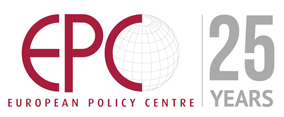(December 6, 2023 – EPC)
Speakers:
- Ayse Yürekli, Brussels-based Researcher, Analyst & Commentator
- Demir Murat Seyrek, Adjunct Professor, VUB, Senior Advisor, EFD & Academic Fellow, EPC
Moderator:
- Amanda Paul, Senior Policy Analyst, European Policy Centre
In a recent discussion about Türkiye’s domestic dynamics, speakers delved into the complexities of Turkish domestic politics, focusing on the upcoming local elections in 2024. The discussion covered various aspects, including changes in opposition dynamics, alliances, economic concerns, and the importance of metropolitan cities like Istanbul.
Key Points:
- Post-election dynamics:
- Opposition voters experienced a level of disillusionment after the presidential and parliamentary elections earlier in the year.
- In these elections held on May 28, 2023, Tayyip Erdoğan secure re-election despite facing a coalition of six parties, emerging victorious with 52,18% of the votes.
- There was a sense of post-election stress disorder, particularly due to economic policies.
- Opposition priorities shifted towards economic concerns, diverting attention from intense political focus.
- Changes in opposition leadership:
- The opposition expressed dissatisfaction with their candidate in the previous elections, resulting in a change in leadership.
- Kemal Kılıçdaroğlu was replaced by Özgür Özel, who brought a renewed sense of optimism and dynamism to the opposition.
- Challenges and opportunities for the opposition:
- The opposition faces challenges in terms of electoral alliances, especially with rural municipal elections approaching in March.
- The need to consolidate voters and generate excitement is crucial for opposition success.
- Changes within the main opposition party, Republican People’s Party (CHP) include a shift toward a more social democratic line.
- Importance of Metropolitan Cities
- Metropolitan Cities, including Istanbul, play a vital role in Turkish politics, representing over 75% of the population.
- Istanbul, being a significant economic and political hub, is a focal point in elections.
- Legal challenges and political motivations:
- Ekrem İmamoğlu faces legal challenges related to the cancellation and rerun of the previous Istanbul elections.
- There is acknowledgment that these legal cases are politically motivated, raising concerns about fairness.
- “İYİ” party’s exit from the opposition alliance:
- The İYİ party decision to withdraw from the opposition alliance was rooted in disagreements over candidate selection and dissatisfaction with the process.
- The party seeks to avoid repeating past mistakes and, despite not being open to alliances, is open to local cooperation based on city-specific considerations.
- Potential Kurdish vote dynamics:
- Kurdish votes are crucial in certain cities, creating a strategic consideration for alliances and cooperation.
- The opposition may face challenges in forming alliances, particularly with the “İYİ” party but public pressure and strategic considerations could influence decisions.
- Strategic messages and challenges for the opposition:
- Opposition parties, led by Ekrem İmamoğlu and Kemal Kılıçdaroğlu, are aiming for a new narrative and strategy.
- Overcoming inner-party struggles and presenting a united front will be essential for the opposition to secure victories in metropolitan areas.
In conclusion, the Turkish local elections in 2024 present a complex landscape with shifting alliances, leadership changes, and economic concerns influencing voter priorities. The opposition faces challenges but also opportunities for strategic collaboration and messaging to secure success in key metropolitan cities.
Link to the event (with video recording):
https://www.epc.eu/en/past-events/Decrypting-Turkiyes-domestic-dynamics~562c8c

